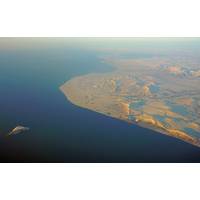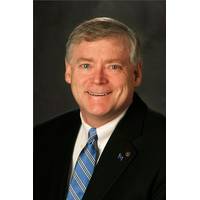Court rules that Biden's ban on offshore drilling is illegal
Former U.S. A federal judge in Louisiana found that the president had exceeded his authority when he withdrawn large areas of U.S. coasts from offshore oil and natural gas development. U.S. District judge James Cain, in Lake Charles in Louisiana, sided against Republican states and groups from the oil and gas industries who sued to stop Biden's plan to protect federal waters along the East and West Coasts, in the Gulf of Mexico, and in the northern Bering Sea of Alaska. Under the 70-year old Outer Continental Shelf Lands Act, the areas were withdrawn. Donald Trump signed an Executive Order repealing this effort.
Oil industry unlikely rush to Alaska despite Trump’s call for drilling
U.S. companies will not expand their development in Alaska or the Arctic after President Donald Trump signed an executive order that allows them to do so. Industry representatives and company officials said this, pointing out that a future president would be able to reverse Trump's decision. U.S. Oil Production is Already at Record Levels. This is largely due to the increased production of oil in more accessible areas such as Texas and New Mexico. Companies have also limited their spending on new projects, focusing on returning cash to investors. The executive order will reopen vast regions for drilling and mining and speed up permits for projects.
Can Trump reverse Biden's offshore oil drilling ban?
In an executive order issued on Monday, President Donald Trump revoked the ban placed by former Democratic president Joe Biden against new offshore oil-and-gas development along most of America's coasts. Trump will face legal challenges regarding his authority. What did BIDEN and Trump do? Biden used his authority, granted by the Outer Continental Shelf Lands Act of 1970, to stop oil and gas drilling in federal waters along the East and Western coasts of the United States as well as the eastern Gulf of Mexico. He also halted the drilling of portions of the northern Bering sea of Alaska. Biden said that the move was in line with his efforts to fight climate change.
Biden bans offshore oil and gas drilling before Trump's term
The U.S. president Joe Biden has announced that he will ban all new offshore oil and natural gas development along the majority of U.S. coasts. This is a decision which President-elect Donald Trump who has pledged to increase domestic energy production may find hard to reverse. Biden, according to the White House on Monday, will exercise his authority under 70-year-old Outer Continental Shelf Lands Act in order to protect federal waters along the East and Western coasts of the United States as well as the eastern Gulf of Mexico. He will also use this authority to protect portions of Alaska's northern Bering sea.
Biden bans offshore oil and gas drilling before Trump's term
The U.S. president Joe Biden has announced that he will ban all new offshore oil and natural gas development along the majority of U.S. coasts. This is a decision which President-elect Donald Trump who has pledged to increase domestic energy production may find hard to reverse. Biden, according to the White House on Monday, will exercise his authority under 70-year-old Outer Continental Shelf Lands Act in order to protect federal waters along the East and Western coasts of the United States as well as the eastern Gulf of Mexico. He will also use this authority to protect portions of Alaska's northern Bering sea.
Alaska Requests Limits on US Offshore Drilling

Alaska Governor Bill Walker said on Tuesday he has asked U.S. Interior Secretary Ryan Zinke to pare back a Trump administration plan for oil and gas leasing off the state's coast. While Walker supports offshore oil development, he said the Interior Department should focus on the most prospective areas off Alaska – the Beaufort and Chukchi seas in the Arctic and Cook Inlet in southern Alaska – and drop all others from the leasing plan. In asking for proposed lease sales to be dropped, Walker, an independent, joins governors of several other coastal states after Zinke's unexpected move to exempt Florida from the department's plans soon after the initial announcement.
Treadwell: Obama’s Policies a Threat to Aleutian Islands

Speaking to the Southwest Alaska Municipal Conference (SWAMC), Lt. Governor Mead Treadwell said President Obama’s delay on approving the Keystone Pipeline could ultimately threaten Alaska’s Aleutian Islands with greater oil spill risk. “If Canada can’t pipe Alberta oil to the Lower 48, they will ship it to Asia via the Great Circle Route by Alaska,” Lt. Gov. Treadwell said. “President Obama says he cares about protecting the environment,” Treadwell said, “but the richest fishery in the world does not appear to be part of the equation. The lieutenant governor was asked to speak to the group about resource and energy issues facing Southwest Alaska.
Three NOAA scientists honored by White House
The White House yesterday awarded three NOAA scientists with Presidential Early Career Awards for Scientists and Engineers. The award is the highest honor given by the federal government to outstanding scientists and engineers in the early stages of their careers. Laboratory. The NOAA scientists are part of a group of 102 scientists from across federal agencies that received the prestigious award. “NOAA is home to some of the world’s leading scientific research and our scientists strive each day to tackle some of the biggest challenges facing our planet,” said NOAA Administrator Kathryn Sullivan, Ph.D.
Industry Urges Senate for Vessel Discharge Legislation
On March 13, a diverse coalition of 59 national and regional organizations representing a wide array of business, maritime and labor interests signed on to a letter to Senate Commerce, Science and Transportation Committee leadership, Chairman John Rockefeller (D-WV) and Ranking Member John Thune (R-SD), thanking them for cosponsoring S. 2094, a bill that would establish a uniform national framework for the regulation of ballast water and other vessel discharges, and urging swift Committee consideration and approval. S. 2094, introduced on March 6 by Sens. Mark Begich (D-AK) and Marco Rubio (R-FL), has 23 bipartisan co-sponsors, nearly one-quarter of the Senate.